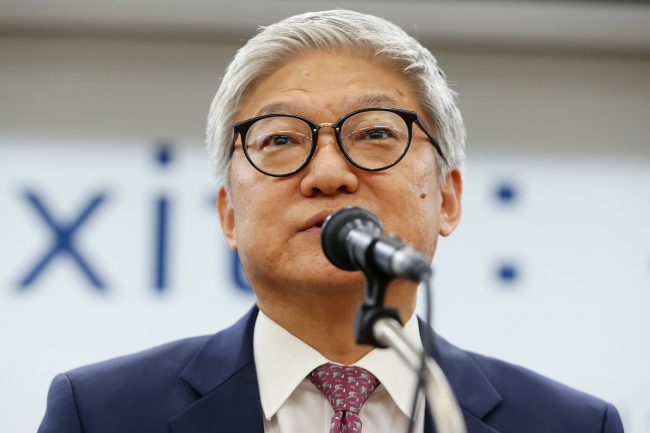State academy chief refutes concerns of China's economic retaliation over THAAD
By KH디지털2Published : July 20, 2016 - 13:04
Korea's deployment of the anti-ballistic missile defense system is not likely to result in economic retaliation from China, the head of the state diplomacy academy said Wednesday.
Earlier this month, South Korea and the United States officially announced their decision to deploy the Terminal High Altitude Area Defense battery in the southern county of Seongju by next year to deal with North Korea's evolving nuclear and missile threats.
China opposes the deployment plan, which it believes will significantly strengthen the U.S.' already strong presence on the Korean Peninsula.
Several critics and news reports here have raised the possibility that China would carry out retaliatory economic measures.
"If China retaliates, it has more to lose (than gain)," said Chancellor Yun Duk-min at the Korea National Diplomatic Academy during a local forum on North Korea. The academy operates under South Korea's foreign ministry.

"It's incomprehensible that China would retaliate against such a country."
"China is also in the process of seeking 'market economy status' under the World Trade Organization ... if China takes economic retaliation over political issues, it would not be able to reach this goal," the chancellor noted.
Economic retaliation is also unlikely given that there are only a few countries that have maintained good relations with China under the current regional environment, he also added. China has clashed with several countries over its claims in the South China Sea.
Still, Korea will have to brace for economic setbacks stemming from dwindling Chinese tourists in the wake of the thorny diplomatic ties with China over the THAAD deployment, the chancellor conceded.
"Nonetheless, our country needs to have (better) missile defense capabilities to protect its people since the country does not possess its own nuclear weapons," he noted.
The official's remarks highlights the potentially bumpy diplomatic relations Korea would have to wade through vis-a-vis its biggest trading partner in the run-up to the country's deployment of the high-tech U.S. defense system. (Yonhap)










![[Hello India] Hyundai Motor vows to boost 'clean mobility' in India](http://res.heraldm.com/phpwas/restmb_idxmake.php?idx=644&simg=/content/image/2024/04/25/20240425050672_0.jpg&u=)








